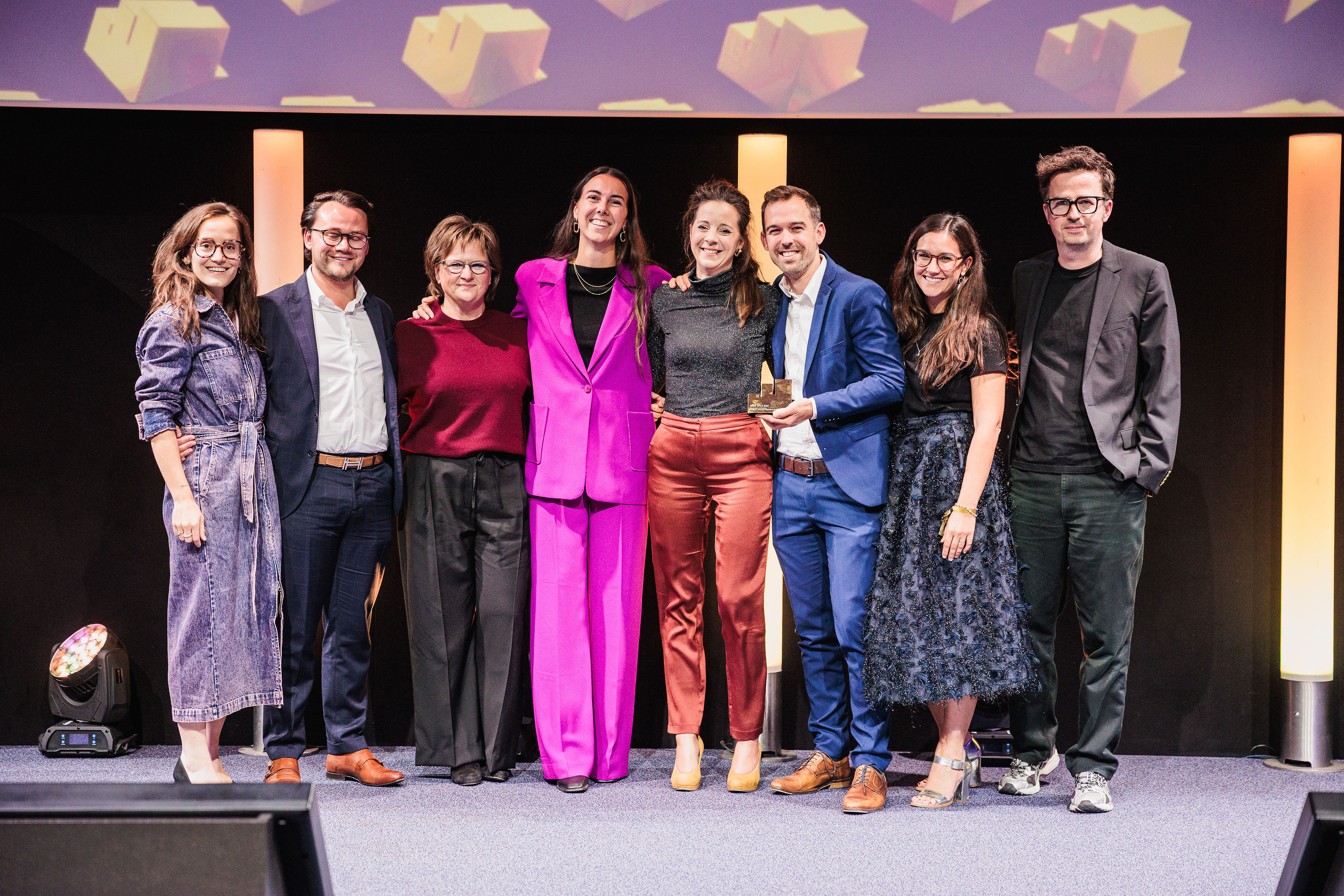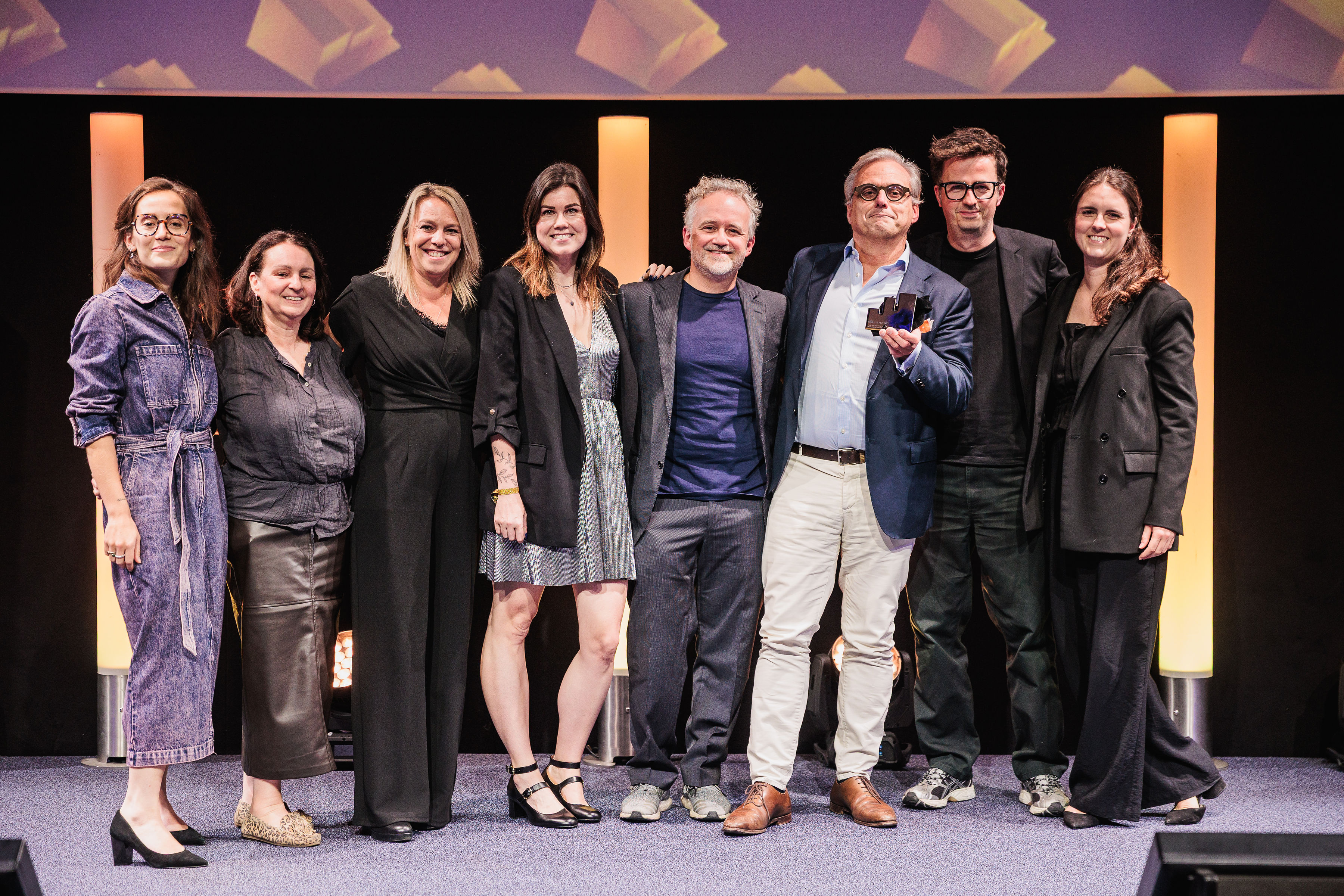Behind the Effies: 6 questions you always wanted to ask.
This year we took home two Effie awards: Gold for Foodbag, Silver for My Family. A huge milestone, but what does it really mean for our work and our clients? We sat down with three members of the team behind the winning campaigns: Lisa Vande Weghe (performance marketeer), Patricia Brackman (campaign manager) and Tomas Sweertvaegher (strategic director).
1. In simple terms, what exactly are the Effie awards?
Tomas: It’s often said that Effie awards are the only award that matter for advertisers. They are unique because they celebrate one thing above all: marketing effectiveness. An Effie is proof that consumer insights have successfully translated into creative ideas and ultimately in tangible success for clients. Established in 1968 to reward "ideas that work", the awards have become a benchmark in the Belgian marketing landscape. A jury of 40 industry experts evaluates each case on its strategy, execution, and proven impact.
2. Let's be honest, the average consumer has never heard of an Effie. So, what's the real, tangible value of this win for a brand?
Lisa: That’s a good question, because the value isn’t about consumers recognizing the award, but the rigorous process required to win it. Effectiveness is a mindset. Every decision, from the objectives over the creative to the chosen marketing mix, is focused on measurable goals. This process eliminates guesswork, strengthens our collaboration with the client, and ultimately leads to campaigns that deliver a much stronger return on investment. An Effie is simply the proof that our shared focus on results paid off.
3. The jury praised the perfect synergy between data and creativity in this year's winners. We all know creatives and performance marketers sometimes speak different languages - one talks in emotion and brand story, the other in CTR and CPA. What’s the secret to make that work?
Lisa: That's the million-dollar question. The secret lies in starting with common goals in a clear briefing. A framework like the Effies is perfect for this, as it forces everyone to connect the creative idea to measurable results from the very beginning. That way, data isn't something we use to judge the creative afterwards, but a shared tool we all use to build a strong campaign.
Patricia: It also makes my job infinitely more effective. My goal is to find the perfect ‘home’ for our creative work. When that work has been shaped by consumer insights & business goals from the start, it’s not a gamble, but a sound decision.

4. Tomas, you're one of the jury members. Putting 40 top-level marketing minds in one room sounds like an ego-management challenge. How do you all come to a consensus without running out of oxygen? And - in your double role - how do you handle conflicts of interest?
Tomas: It's definitely a demanding process, but it’s designed to be incredibly thorough and fair. For every case, at least one jury member acts as its "advocate" highlighting its strengths, while another plays the "prosecutor" pointing out its weaknesses. This forces a 360-degree view of every entry. As for conflicts of interest, the rules are extremely strict. If a case I have a connection with comes up, I leave the room - no questions asked.
5. Putting on your judge's hat for a moment, what's the most common mistake you see in the submissions, and how did we manage to avoid it with our winning cases?
Tomas: A common flaw we see is the correlation vs causation trap. A submission will show impressive business results, but fails to prove their work caused those results. They don't isolate their impact from other factors like price promotions or actions from the competition. So we are left wondering, "Was it your brilliant campaign, or did you just get lucky?" With our cases, we used data analysis to build an undeniable link between our specific marketing actions and the positive business results.
6. There's often a perception that you need a blockbuster media budget to win an Effie. Do you believe that's true?
Patricia: That's a common misconception. A blockbuster budget is not a requirement for winning. The 'right' budget depends on the context of the campaign. How large or niche is the target audience? A campaign aiming to change behavior in a small, specific group will naturally require a different level of investment than a national brand launch. The jury’s focus isn’t on the absolute size of the spend, but on the return it generates. It’s about having the smartest, most appropriate budget for the specific challenge at hand. A strategic investment that delivers outstanding results will always impress, regardless of its size.

Curious about the work itself?
Dive into the Gold Effie case for Foodbag and the Silver Effie case for MyFamily.